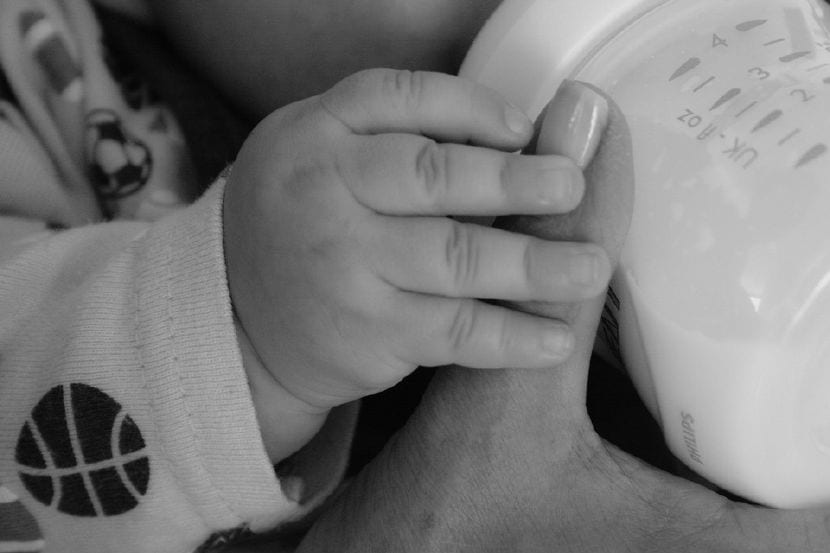
Cleaning babies' bottles and pacifiers well is very important to prevent infectionssince your immune system is not yet fully developed. But how do you clean them properly to be safe? Should we always sterilize bottles and pacifiers? We answer your questions and we tell you about tips for washing bottles.
Baby bottles and pacifiers, how long should they be sterilized?
As we have seen, cleaning both bottles and nipples is very important to protect the baby from possible infections. Until not many years ago, it was recommended to sterilize after each feeding. But the experts now They recommend sterilizing the first time before use, up to 3-4 months of the baby and once a week.
Sterilizing everything at all hours is like trying to create a bubble for your child against germs, which is preventing him from developing his immune system correctly. It is important to have a good hygiene of your things but no need to sterilize everything continuously as recommended before. Fortunately, hygiene conditions in homes have increased and so much protection is no longer necessary.
What types of sterilization are there?
There are 3 types:
- With boiling water: the most used. It is comfortable and cheap. Put water to boil and as soon as it boils, put the parts of the bottle. After only 5 minutes we can take the bottle out.
- With microwave. For this we will need a special sterilized for microwaves. You should check that your baby's bottles can be put into the microwave. Then you just have to follow the instructions of the product to achieve sterilization.
- Cold. There are specific products to sterilize that dissolve in water, and then cover the parts of the bottle for as long as the label marks.

Tips for washing bottles
As we have seen, it is not necessary to sterilize the bottle, pacifier and teether all the time. After the baby is 3-4 months old, we can wash it normally following some instructions:
- Wash your hands well before handling the bottle. It is useless to wash it well without having dirty hands later.
- Wash it with warm soapy water. It is the most common and quick option, we must rinse well so that no trace of soap or milk remains. We can also put it in the dishwasher.
- Wash it as soon as you finish using it. To avoid sticking residues and it is easier to clean, we must clean the bottle as soon as it is finished, separating its different parts and washing them well with soap and water. It affects mainly the parts where the milk can stick, such as the thread, the nipple and the edges inside.
- Bottle cleaning brushes are very practical, since it allows to reach every corner effortlessly.
- Air dry. If we dry them with a cloth we risk that everything we have done is useless and bacteria remain inside. It is recommended to let the pieces dry completely in the open air, before putting the pieces back together.
- Recommended have more than one bottle to always have a dry and clean one.
- Don't leave the bottle ready for too longas it could become contaminated. If you have no choice, keep immediately in the fridge.
- Do not save milk from other feeds. If there is milk left over in any feeding, do not save it, throw it away. Germs could be generated.
- If the tap water is not suitable for drinkingNor will it be for washing the first babies even if it is hot. It is advisable to boil it to ensure that it is in the recommended hygiene measures.
No need to go crazy about sterilization
As you can see, it is no longer necessary to sterilize everything at all times as it was done before. Unless the pediatrician indicates otherwise due to a baby's pathology, following these simple tips will ensure that your baby is protected without going overboard.
If the baby takes breast milk we do not sterilize the nipples, with washing them well it is enough, because with the bottles the same.
Because remember ... we must protect our children but avoid overprotection.